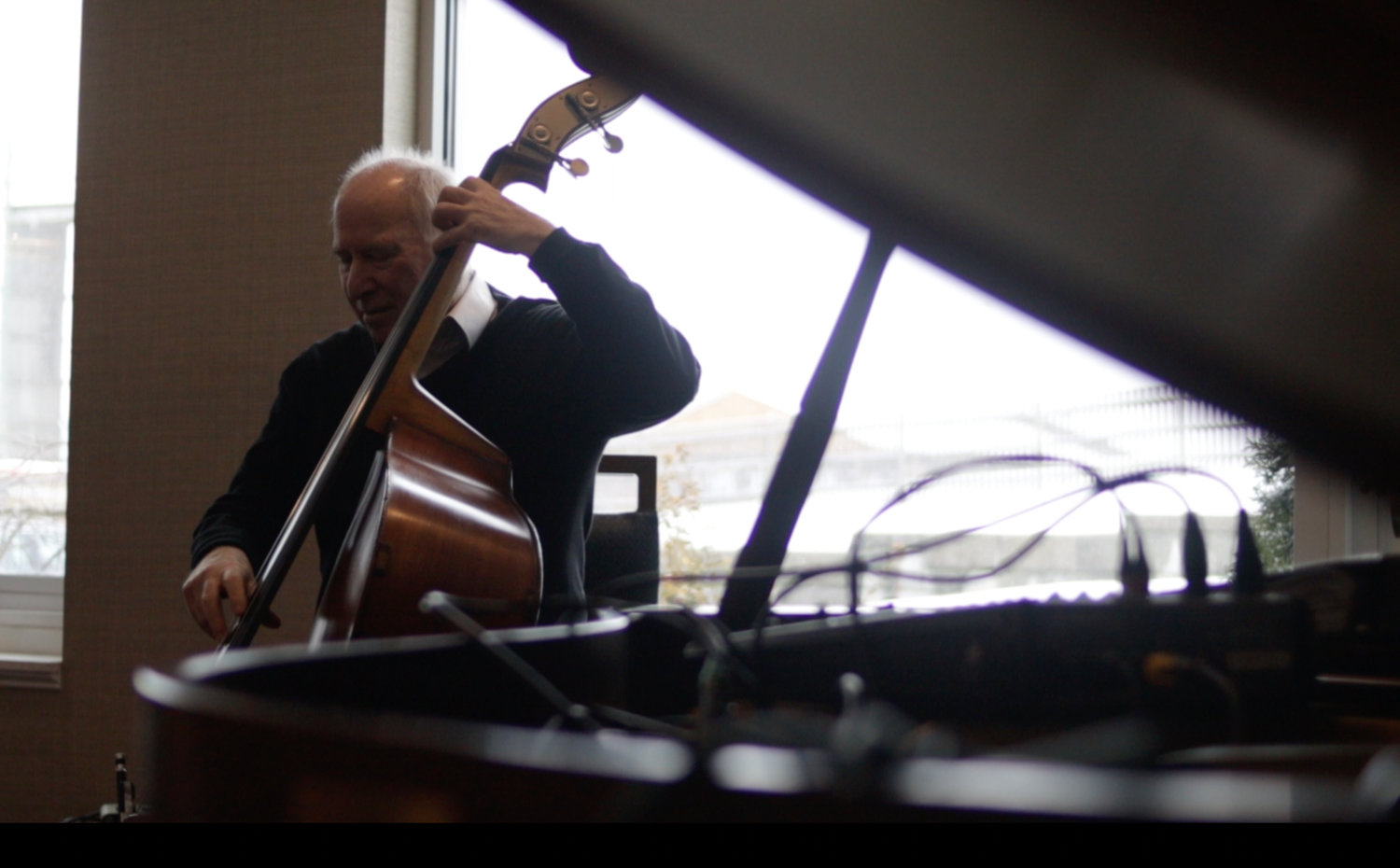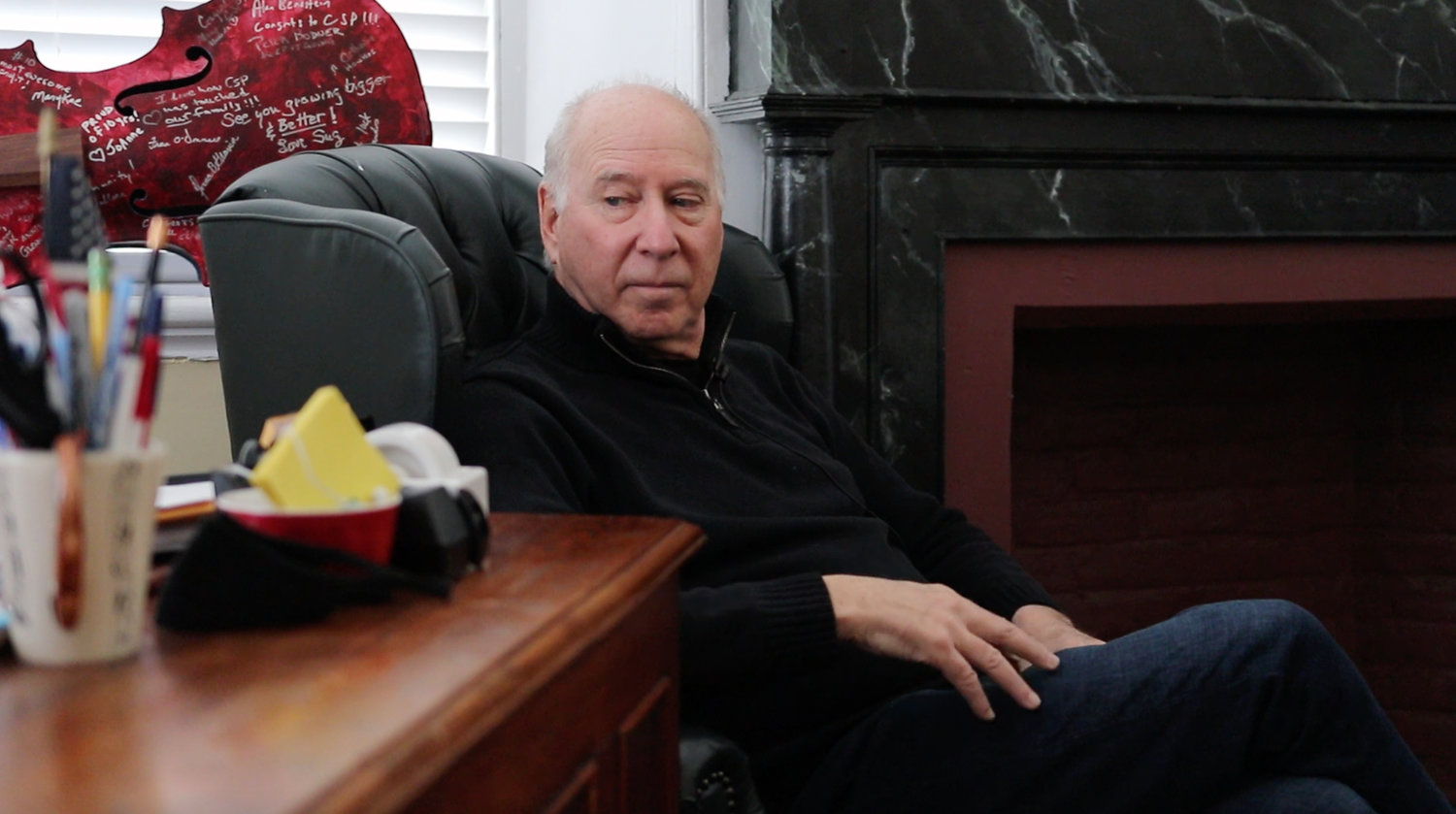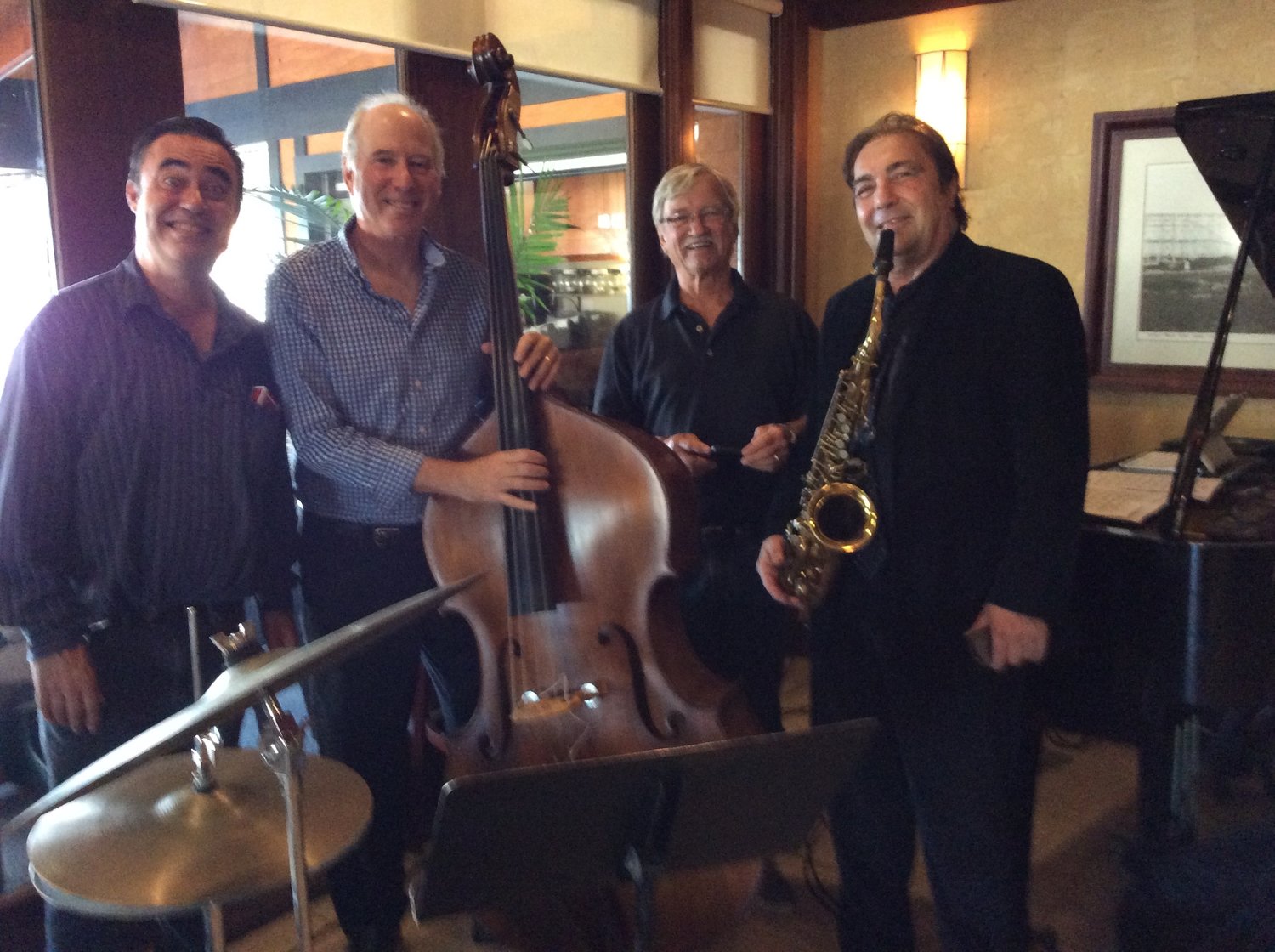Alan Bernstein – musician, educator par excellence
For decades, Alan Bernstein has lived two lives. One is largely orchestral, the other is pure jazz.
One life, the orchestral, takes place in classrooms; the other is on stages. One involves students, most of them young; the other caters to adults.
Bernstein, 69, has always managed to balance these two lives and to excel at both: He is an acclaimed instrumentalist who has performed in the Newport area since the 1980s; the Newport Public Schools named him Teacher of the Year in 2013; and he received a Distinguished Music Educator’s Award from Yale University in 2007.
On paper, Bernstein, of Newport, is retired. But in practice, he continues to perform every week, and he also serves as executive director of the Community String Project, an inclusive music-education program headquartered in Bristol.
“I like to be busy,” the Newport native says. “I always have. Teaching school five days a week – and obviously I put more into it than that, because, as a music teacher, you don’t just stop at 2:30, you go until you’re done. So I would do that, and then on the weekends, I’d be playing gigs. That was kind of my life. It’s hard to back off from that.”
Bernstein grew up in an Orthodox Jewish family and attended services at Touro Synagogue, in Newport, where his Bar Mitzvah was held. He had a strong affection for Rabbi Theodore Lewis [Touro’s rabbi for 36 years] and his rich Irish accent.
“I just thought that’s how all rabbis talked,” he said with a laugh during a recent interview.
At 10 years old, Bernstein was considered “a hyperactive child,” and doctors recommended medication.
“My mother refused,” Bernstein recalls, “and bought me a guitar instead.”
The instrument helped him focus his energy, and it also heightened his appreciation for jazz.
“I was always drawn to jazz,” he recalled. “Even as a young child, I remember hearing Ray Brown play, and I’m thinking, ‘Whoa, I like that.’ ”
His aptitude for guitar led him to the Rhode Island School of Music in 1972, an institution inspired by Berklee College of Music, in Boston. The non-accredited R.I. music school closed shortly thereafter but not before Bernstein met lifelong friends and mentors there.
“[The school] was a great idea, and it introduced me to a lot of people I presently engage with musically,” he said.
Then a jazz band invited Bernstein on a national tour, as long as he switched from guitar to electric bass. Bernstein signed up, and the bass proved to be a revelation.
“I found my voice,” he said.
For the next seven years, the young musician lived and performed on the road.
“When you’re in your twenties, you’re not really thinking of your grand future,” he said. “I was a young man, free and traveling around the country and enjoying being a vagabond musician.”
But, after he started dating Karen, whom he would marry in 1985, he decided to stop touring and return to Rhode Island. He also pondered going back to school.
So, at 27, Bernstein started calling different music programs until he stumbled upon Don Burns, the legendary music professor at the University of Rhode Island.
“Don was just an amazing band leader,” Bernstein said. “He just said, ‘Hey, what are you doing? Why don’t you come over?’ That was the kind of guy he was.”
URI didn’t teach electric bass in its undergraduate music programs, so Bernstein once again changed his focus – to the upright bass.
Returning to the classroom helped him refine his understanding of musical theory, and he grew more familiar with classical and orchestral composition, he said.
“You start thinking about the big picture. I was going to do something with music. Fill in the gaps for the things I didn’t know. I didn’t have a lot of theoretical knowledge. I needed the terminology and the historical examples to put it in place for me.”
Bernstein completed both a bachelor’s and master’s degree in music education at URI, graduating in 1986.
While in school, he continued to perform publicly, but now it was with established local musicians. One was the late Mac Chrupcala, who performed in Newport’s busy nightclubs and also taught music in the town’s public schools.
“He was a local legend,” Bernstein said. “I felt very honored that he would ask me to play with him in his ensembles. He kind of mentored me.”
Chrupcala introduced Bernstein to the idea of teaching music during the day and performing at night. The demand for live music in Newport was boundless, and a skilled musician could book shows every night of the week. Teaching during the day meant a salary and health benefits, exactly what Bernstein needed to start a family.
In 1986, Bernstein was hired to teach in the Fall River, Massachusetts, public schools. He worked there for a year, learning the ins and outs of public education, before Chrupcala alerted him to an open teaching position back in Newport.
“I was torn, because I loved teaching in Fall River,” Bernstein said. “They were a wonderful community. The children were wonderful. The administration was wonderful. And I really developed a close, warm relationship with the staff and students and families. But Newport was my home, and that was where I went.”
For nearly three decades, Bernstein was a cornerstone of music instruction in Newport. Generations of pupils passed through his classrooms, learning a variety of instruments and genres, from band to jazz band to orchestra. He became a supervisor of music, then a supervisor of the arts.
“I had a wonderful career there,” Bernstein said of his public-school years. “I taught pretty much everything that can be taught.”
Along the way, Bernstein’s daughter, Chelsea, became an instrumentalist, mastering both the cello and the viola da gamba. She went on to receive a Doctor of Musical Arts degree from the University of Maryland’s School for Music.
Toward the end of Bernstein’s teaching career, another opportunity came knocking: the Community String Project. Bernstein didn’t create the string project, which opened in 2009, but he was closely associated with its founder, Robert Arsenault.
Arsenault was the chair of the Performing Arts Department at Mount Hope High School, in Bristol, and he took inspiration from the “El Sistema” music education program in Venezuela. The idea was to provide affordable instruction in stringed instruments. Tuition is heavily subsidized, so classes are accessible to almost any household. That first summer, 33 students started learning violin.
After retiring from the Newport Public Schools in 2015, Bernstein became executive director of the string project. He had already served as a consultant for the curriculum, and he knew the project’s model well.
“Empathy is a really strong skill. There’s all sorts of people in this world. The children have various ways of learning,” he said. “If you just open your eyes and listen to what the children are saying to you, you can see what their needs are. It’s your job to be loving, fair, empathetic, nurturing. I guess that would be my philosophy.”
As executive director, Bernstein has helped make sweeping improvements to the project, from digitizing enrollment to streamlining donations and filling out a roster of 10 artist-teachers. Most students are young, but the project has adult classes and ensembles as well.
These days, Bernstein continues to perform, including a regular gig at Johnny’s Restaurant at the Wyndham Newport Hotel.
He rarely teaches now, but his dynamic style remains an inspiration to many.
Go to JewishRhody.org to hear Bernstein perform and discuss his career.
ROBERT ISENBERG (risenberg@jewishallianceri.org) is the multimedia producer for the Jewish Alliance of Greater Rhode Island and a writer for Jewish Rhode Island.













